18 November 2024
Bright lights, big city, cutting-edge cancer research. Dr Olivia Burn has spent the past twelve months working as a Malaghan International Research Fellow on a collaborative liver cancer programme at the Icahn School of Medicine at Mount Sinai Hospital in New York. Now, armed with new skills, connections and expertise, she’s back at the Malaghan Institute, keen to apply what she’s learned to make a difference for the many Kiwis living with liver cancer.

According to the Ministry of Health, liver cancer rates in New Zealand have been steadily climbing since the 1980s. Today, around 400 New Zealanders are diagnosed with this disease each year, with rates higher in Māori than non-Māori – a disparity influenced by complex social, environmental and health factors. Known risks for developing liver cancer include fatty liver disease, hepatitis B, obesity and alcohol consumption.
What’s more, survival rates for liver cancer globally are poor, partly due to the genetic diversity of the disease and lack of effective treatments available. For most cancers, the more genetically-diverse cancer cells are within tumours and between individuals, the less likely a given therapy will work for everyone.
“Liver cancer patients often have fewer treatment options compared to other liver diseases and cancers,” says Dr Burn. “And those that do exist are not hugely effective in the long term. Immunotherapies like immune checkpoint inhibitors are making strides, but they’re still a long way off compared to treatments for other kinds of cancers.”
The collaboration between the Malaghan and Mount Sinai aims to lay the groundwork to challenge this status quo, bringing together world-leading expertise from opposite sides of the globe to tackle liver cancer and develop better solutions for patients in need. The partnership leverages expertise and cutting-edge liver cancer models from Associate Professor Amaia Lujambio’s laboratory at Mount Sinai Hospital with Professor Ian Herman’s Laboratory at the Malaghan Institute, and their patented vaccine technology that specialises in stimulating strong, lasting immune responses in the liver. It’s a winning combination the team believe will one day lead to new kinds of immune treatments for liver cancer.
“The liver is a fascinating organ that carefully balances its role in recognising and destroying harmful pathogens while not overreacting to the toxins and waste it filters from the blood. How it manages this complex task is not yet fully understood,” says Dr Burn, whose international fellowship was supported by the Cancer Society of New Zealand and the Dines Family Foundation.
“That complexity extends to liver cancer, too. For any immune therapy to be effective, we need to know which features of the cancer – which antigens – we can target to trigger the body’s defence system. This is a challenge when you have an extremely diverse cancer like liver cancer.”
Dr Burn says this is one of the main reasons she went to Mount Sinai. “The Lujambo lab has developed these impressive preclinical models for liver cancer where we can switch on and off different genetic drivers of the disease that closely mimic what we see in human liver cancers, and test the vaccine we’ve developed at the Malaghan Institute against these.”
Assoc Prof Lujambio, whose lab focuses on the mechanisms of liver cancer and the genetic changes that give rise to the formation of liver tumours, says that while Dr Burn’s time at Mount Sinai was brief, it was impactful.
“Having Olivia in our laboratory at Mount Sinai was a real treat,” says Assoc Prof Lujambio. “Olivia came to our lab with lots of ambitious goals and not that much time, but somehow she was able to be incredibly productive and generate high-quality data in record time. She fitted perfectly in the lab from the first day and became a key member of the team.
“It’s been amazing to see how her vaccine strategy has significant therapeutic effects in hepatocellular carcinoma – liver cancer – a tumour type that is really hard to treat. Given her enthusiasm for science and her unique vision, I am sure she will keep contributing enormously to the liver cancer field in the years to come.”
Dr Burn, who hails from the Bay of Plenty, says she found working across the road from Manhattan’s Central Park a hugely exciting and eye-opening experience.
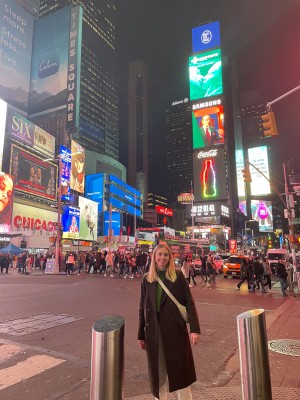
Olivia in Times Square
“New York was such a vibrant and diverse place to live and work. One day, you’re wondering why you’re struggling to get home from work, only to realise it’s because of the Met Gala; the next, you’re enjoying lunch in Central Park while trying to catch the April solar eclipse with half of New York. Above all, I’m just very thankful I got the opportunity to be part of some really advanced research in a world-leading lab.”
Having settled back into her life and routine at the Malaghan Institute, Dr Burn is passionate about ensuring the gains made in New York continue to advance liver cancer research in New Zealand.
“If we want to bring this sort of therapy to the clinic in New Zealand, we really need to make sure we have the right support to get it there,” says Dr Burn. “We’re looking at immune responses to genetically diverse liver cancers in a new way, but if we want to build up enough evidence to suggest it’s worth designing new treatments for clinical trials we need to do a lot more groundwork to make that happen.
“That means more fundamental research, more data, and – crucially – more financial support to really prove we are on to something.”
Related articles
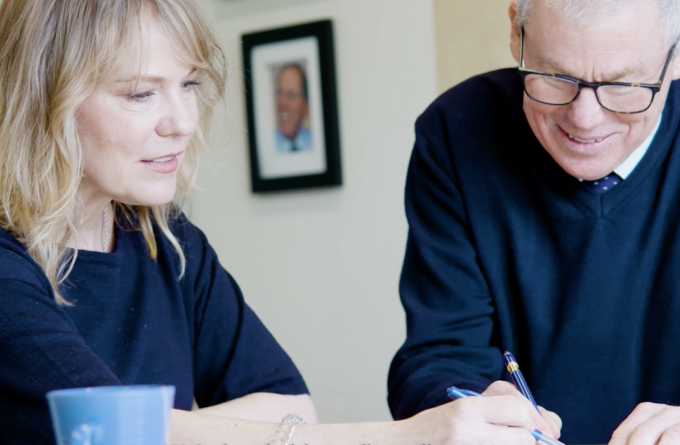
Kjesten Wiig: bringing life-changing treatments to life
27 February 2025
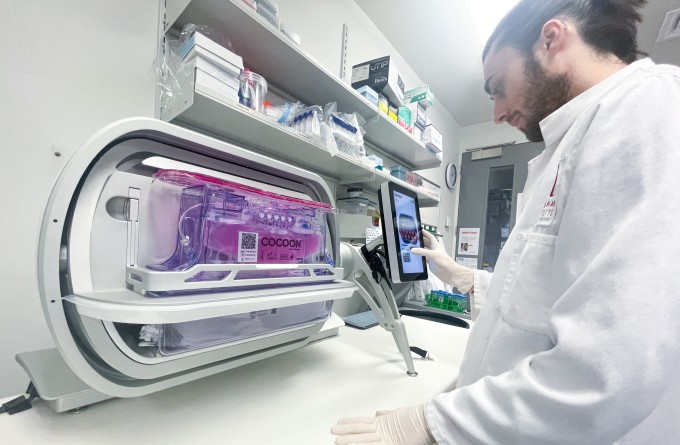
Malaghan CAR T-cell cancer therapy trial expands to Christchurch and Auckland
24 February 2025
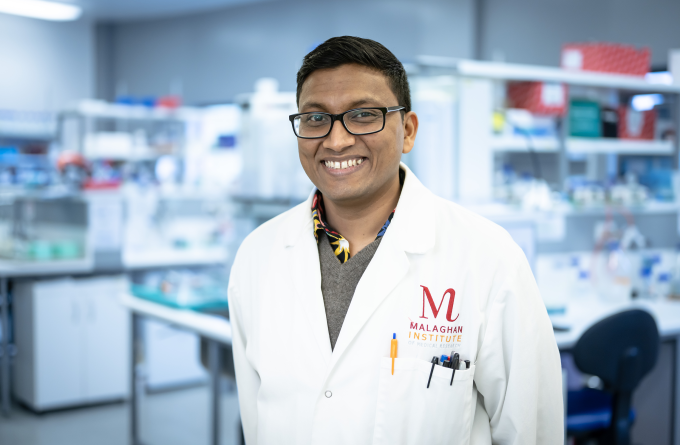
Cancer Research Trust grant to improve CAR T-cell therapy
12 February 2025
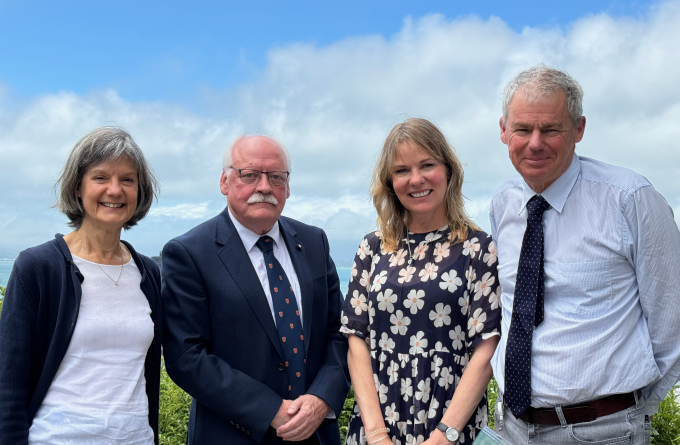
World-renowned cancer pathologist joins the Malaghan Institute as Distinguished Research Fellow
19 December 2024
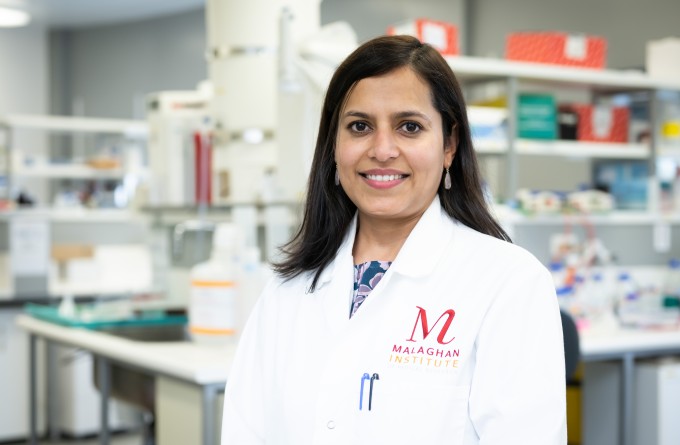
CAR T-cell therapy, the battle of the blood cells
26 September 2024
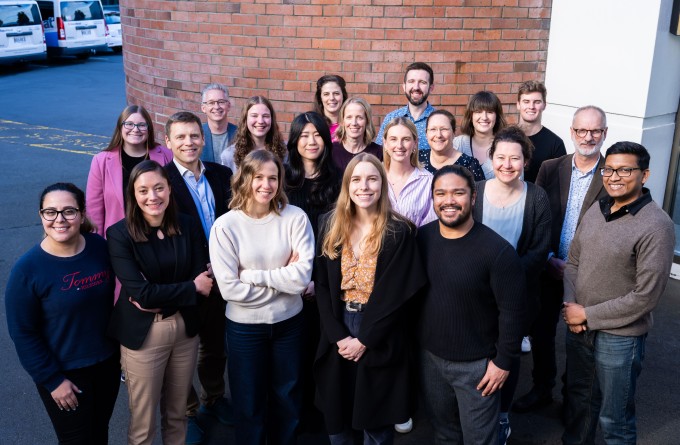
Phase 2 clinical trial underway to confirm effectiveness and safety of NZ’s first CAR T-cell cancer therapy
23 July 2024
